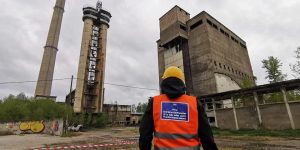Brussels, 12 December 2018
The European Parliament and the Council of the European Union have taken key steps today towards political agreement on rescEU, the plan to strengthen EU civil protection response to disasters.
Multiple natural disasters have affected all parts of the EU in recent years, causing hundreds of casualties and billions in damage to infrastructure. To better protect citizens, rescEU will strengthen the existing EU Civil Protection Mechanism. In particular, a new European reserve of capacities will be established including forest fighting planes, special water pumps, urban search and rescue and field hospitals and emergency medical teams.
On this occasion, President Jean-Claude Juncker said: “A Europe that protects citizens has to be there in times of need. When there is a dangerous forest fire or a flood overwhelming national response, our citizens want action not words. rescEU will ensure concrete solidarity with our Member States hit by disasters.”
Commissioner for Humanitarian Aid and Crisis Management Christos Stylianides said: “Natural disasters know no borders and climate change is increasing their risks and impact. With rescEU our current Civil Protection Mechanism will be taken to a next level. Today’s positive development proves that when there is a will, there is a way. I am grateful to the European Parliament, in particular to the rapporteur Elisabetta Gardini MEP and the budget’s draftsman Jose-Manuel Fernandes MEP as well as to the Austrian Presidency for their leadership. With the upgraded EU Civil Protection Mechanism there will be more capacities, better coordination between Member States and above all more effective solidarity to our citizens. This is a European solution to a European challenge.”
Strengthening European response capacities
The EU will strengthen its response capacities through the following measures:
- Establish, in collaboration with Member States, a common European reserve of capacities to respond to disasters. Such capacities would include firefighting planes, as well as other means to respond to situations such as medical emergencies or chemical biological radiological and nuclear incidents;
- Co-finance the operational costs of rescEU capacities when used for the EU’s Civil Protection Mechanism operations;
- Co-finance the development of rescEU capacities;
- Increase financial support for capacities registered in the European Civil Protection Pool, including for adaptation, repair, operational costs (inside the EU) and transport costs (outside the EU).
Stepping up disaster prevention and preparedness
The EU will step up support for Member States to improve their disaster risk management:
- Establish a simplified reporting framework, focusing on key risks of a cross-border nature and risks of low probability with high impact;
- Provide support to Member States to increase their existing measures through consultation mechanism and, deployment of expert missions and follow-up recommendations;
- Share knowledge and lessons through the setting up of a new EU Civil Protection Knowledge Network.
Next steps: Following today’s political agreement, rescEU will have to be formally approved by the European Parliament and the Council of the EU.
Background
Why do we need rescEU? The EU’s Civil Protection Mechanism is currently based on a system, through which the EU coordinates the voluntary contributions of Participating States to a country that has requested assistance. Offers of assistance are coordinated by the European Emergency Response Coordination Centre based in Brussels. In recent years, extreme weather conditions and other phenomena have stretched the ability of Member States to help each other, especially when several Member States face the same type of disaster simultaneously. In such cases where there is limited or no availability of assets, the EU does not have a reserve capacity to assist overwhelmed Member States. Moreover, the emerging risks landscape creates the need to collectively reflect on capacities needed to face risks of low probability but with a high impact, currently lacking in Member States.
The European Union has faced a large number of disasters with loss of lives and other damaging consequences for citizens, communities, businesses and the environment. In 2017 alone, 200 people were killed by natural disasters in Europe. The economic costs are huge too: close to €10 billion in damages on the European continent were recorded in 2016.
For more information
Factsheet – rescEU: A stronger collective European response to disasters



